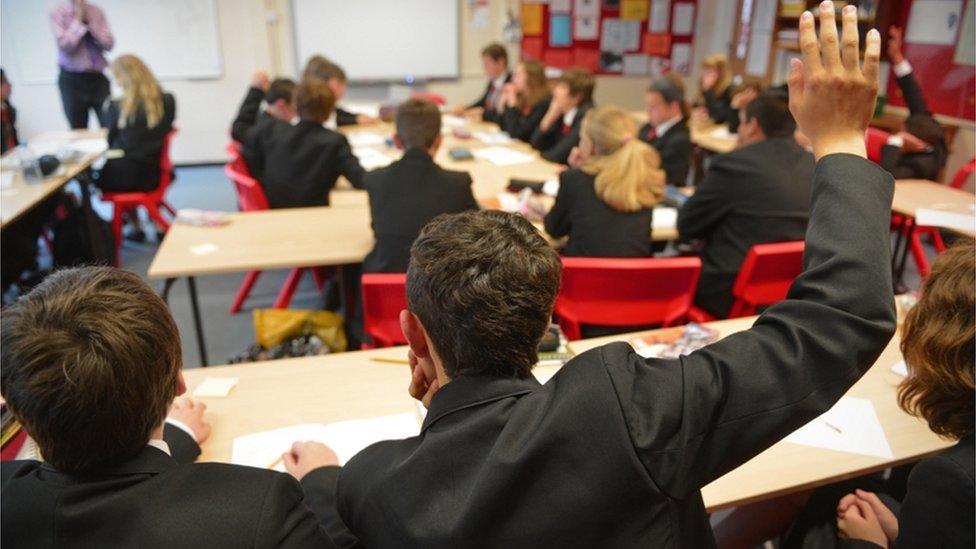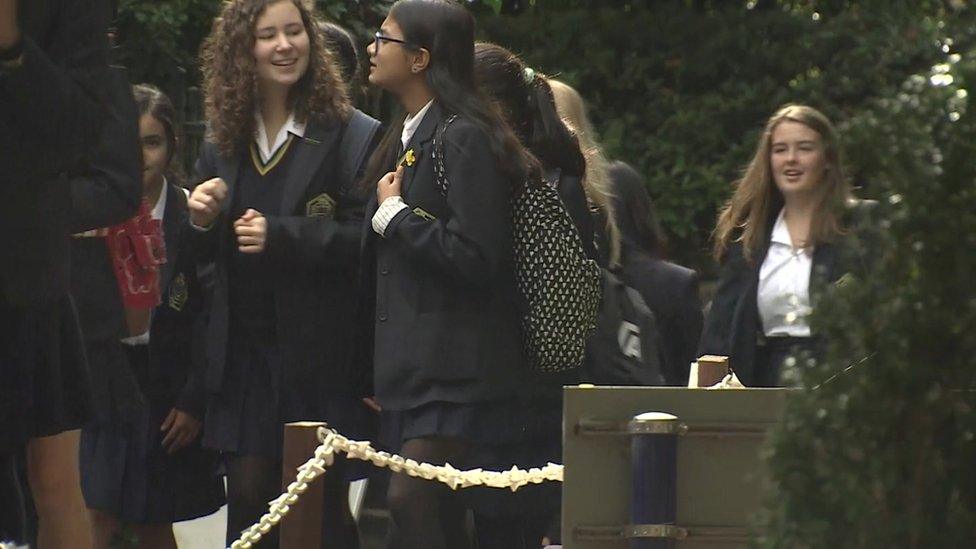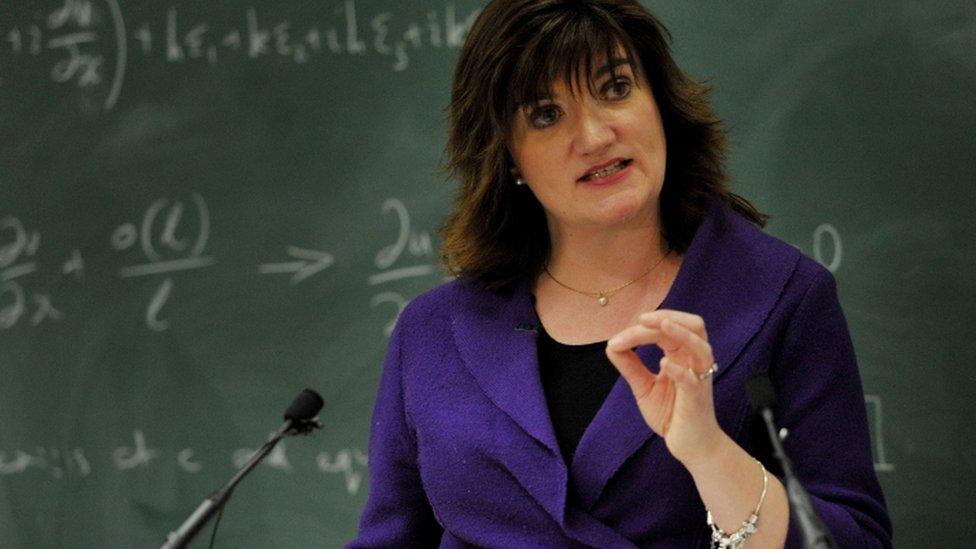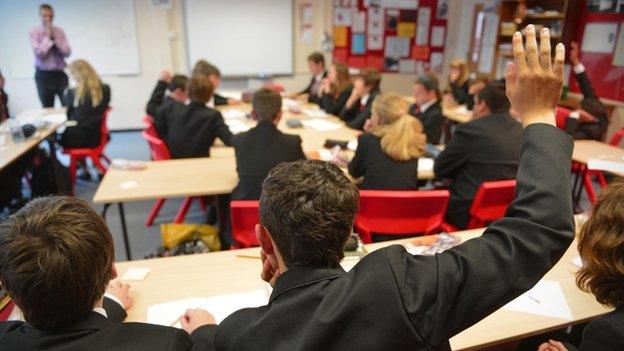Government formally drops academies legislation
- Published

The bill announced plans for voluntary conversion of all schools to academies
The government is dropping a bill to convert all schools to academies, announced in the Queen's speech.
The Education Bill was based on a white paper which initially suggested all schools in England would be compelled to become academies.
But the element of compulsion was dropped after protests from councils and, instead, the bill encouraged schools to convert.
Education Secretary Justine Greening said no new legislation was required.
In a written Parliamentary statement , external Ms Greening said: "Our ambition remains that all schools should benefit from the freedom and autonomy that academy status brings. Our focus, however, is on building capacity in the system and encouraging schools to convert voluntarily.
"No changes to legislation are required for these purposes and therefore we do not require wider education legislation in this session to make progress on our ambitious education agenda."
The element of compulsion was dropped by the government after protests from many councils, including the mainly Conservative members of the County Council Network, external, who were opposed to forcing high-performing schools in their areas to convert.
Academies are independently run - but state-funded - schools, overseen by a not-for-profit business, known as an academy trust. They are often part of a chain.
The original plans would have required all schools to convert to academy status, or have plans to do so, by 2022.
BBC Education Editor Branwen Jeffreys says the statement clears the way for draft plans to be brought forward, including Theresa May's proposals for more grammar schools in England.
The Prime Minister announced plans last month to reverse Labour's 1998 ban on new grammar schools.

Analysis by Branwen Jeffreys
This is all about drawing a line under the education policy of David Cameron, and clearing the way for the agenda set out by Theresa May.
In many ways it was an inevitable step. By the time an education bill was announced in the Queen's speech on May 18th, its key component had already been dropped in an embarrassing U-turn.
The suggestion that all state schools overseen by councils should be forced to become academies had provoked ire on the Conservative back benches.
Many county councils felt they were doing a good job, and should be left alone.
They argued that academisation was the solution for schools that were failing or chronically underperforming. It was this stiff opposition from the shires and counties that made the U-turn unavoidable.
Since then the political landscape has changed beyond recognition. Theresa May has put her own stamp firmly on education policy with a green paper suggesting more schools should be able to select pupils on academic ability. The consultation ends in mid-December, and a white paper may follow in the spring.


The government wants to reverse Labour's 1998 ban on new grammars
Labour's former shadow education secretary, Lucy Powell, said the plan had always been "flawed".
"It is about time that Ministers put the final nail in the coffin of these proposals," she said.
Ms Powell also called on Education Secretary Justine Greening to "follow the evidence and drop Theresa May's regressive plans to expand selective education and open new grammar schools, something which now at least looks delayed for the rest of this parliamentary session".
'Against evidence'
The Local Government Association, which represents councils in England, said the move showed the government had been listening to its concerns.
"In particular, both the forced academisation of schools in areas considered to be 'unviable', and the removal of the council role in school improvement, went against evidence that council-maintained schools perform more highly than academies and free schools in Ofsted inspections, and that conversion to academies did not in itself lead to better results," said Richard Watts, chairman of the LGA's Children and Young People Board.
Teachers' unions expressed relief at the decision.
"It was, and remains, inappropriate to force good schools to convert when the evidence of any benefit is so dubious," said National Association of Head Teachers General Secretary Russell Hobby.
The Association of Teachers and Lecturers called it "a victory for common sense".
National Union of Teachers General Secretary Kevin Courtney said it was clear government education policy was "in complete disarray".
And NASUWT General Secretary Chris Keates said huge questions remained about the scope and pace of reform.
- Published27 October 2016
- Published6 May 2016

- Published3 June 2015
